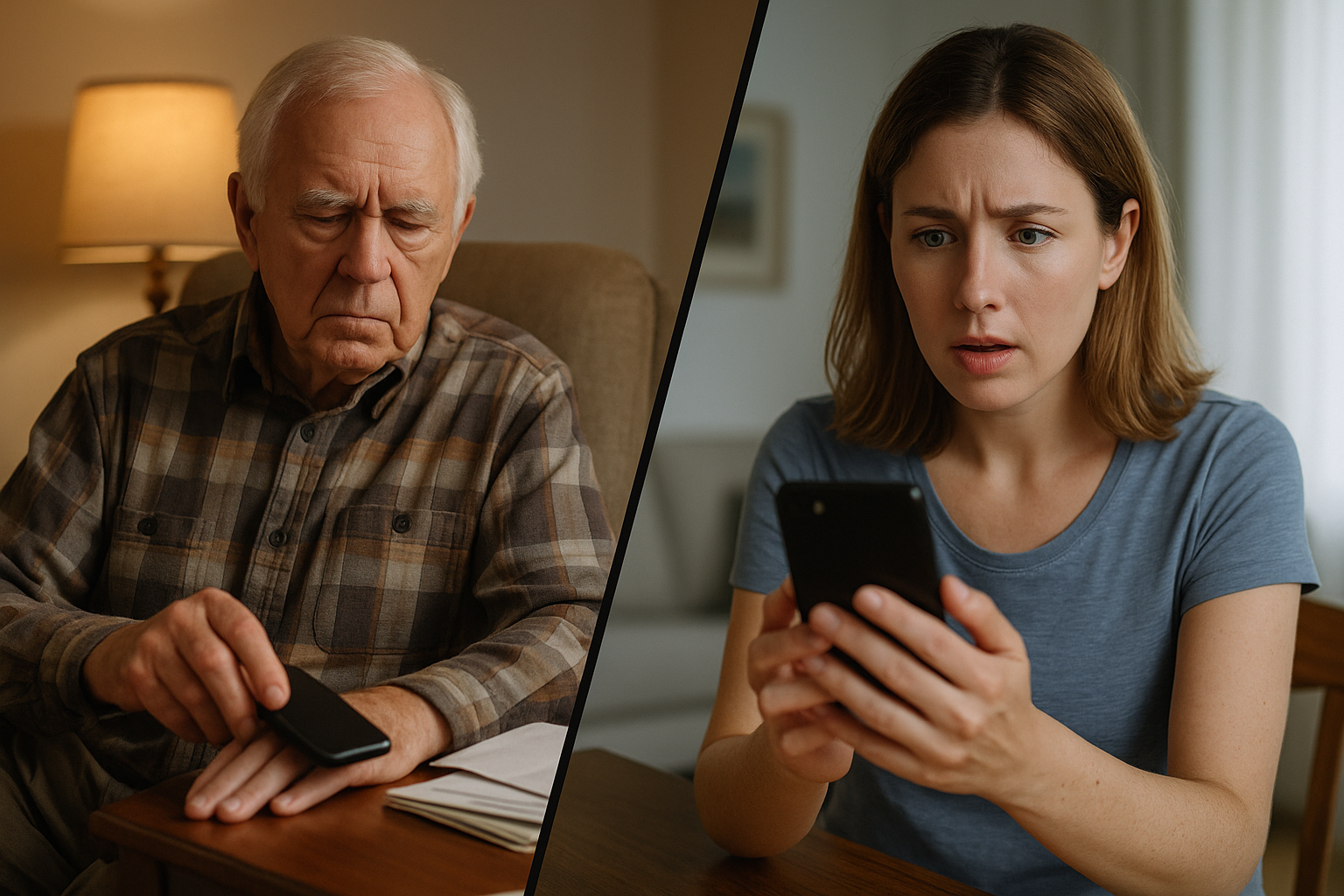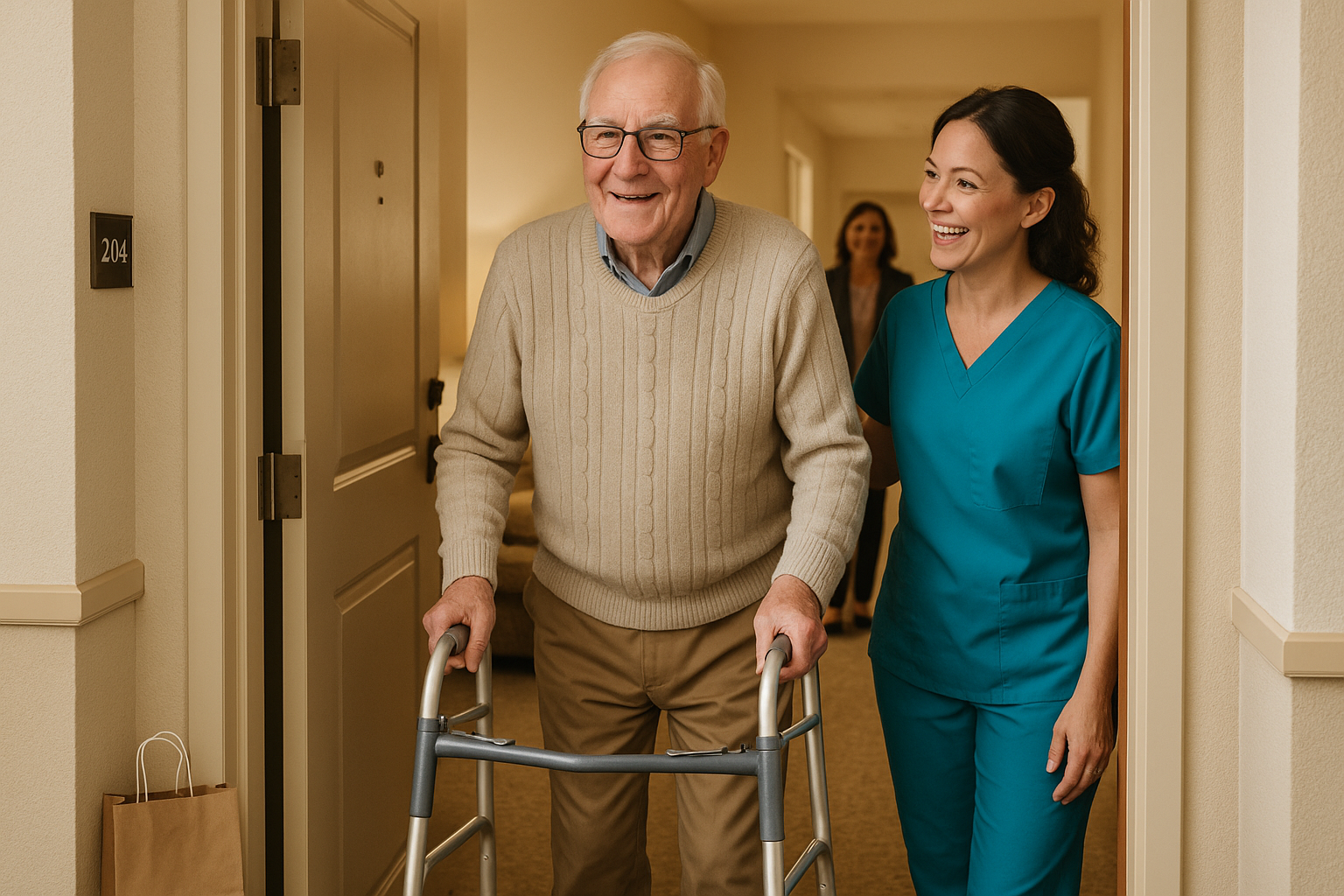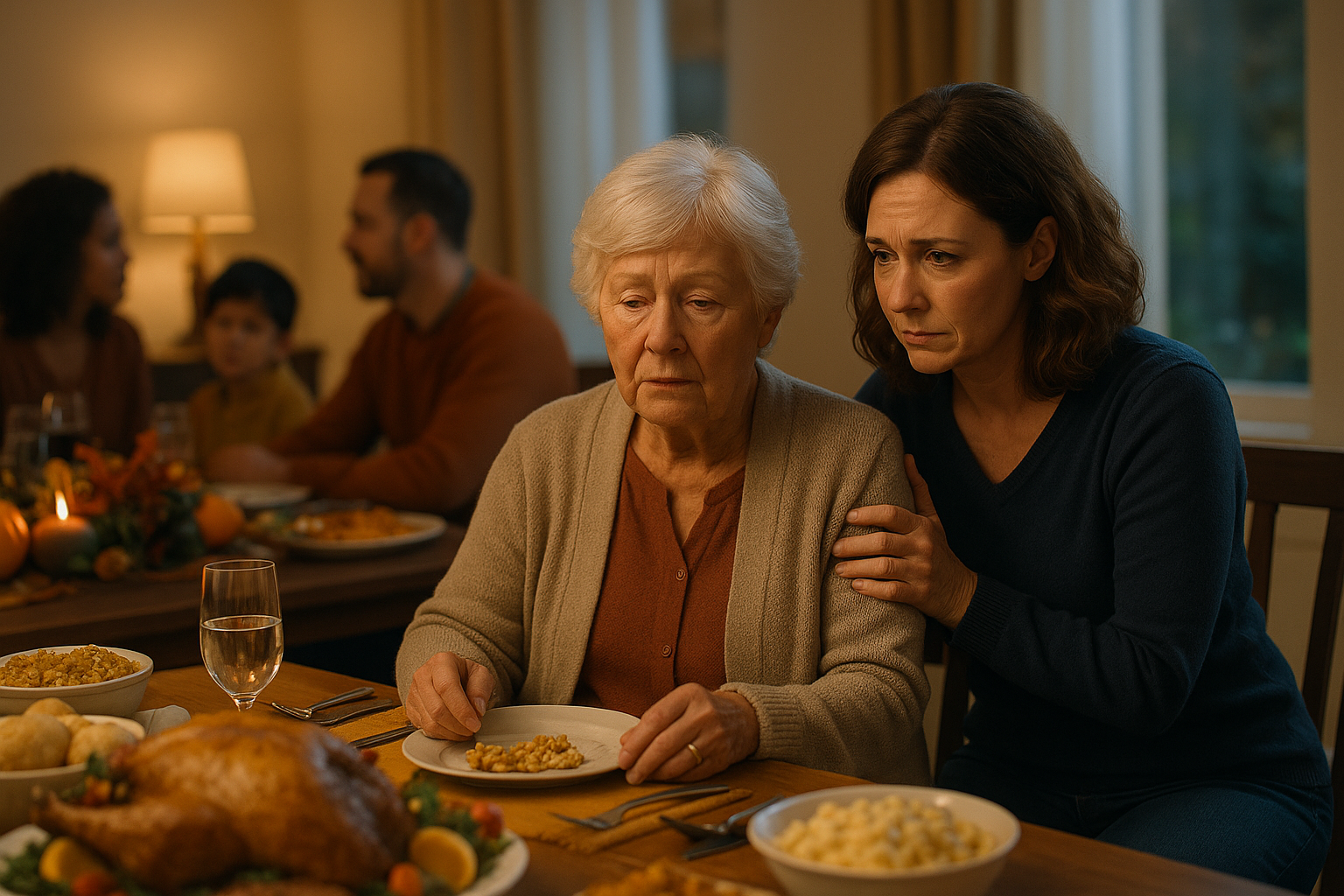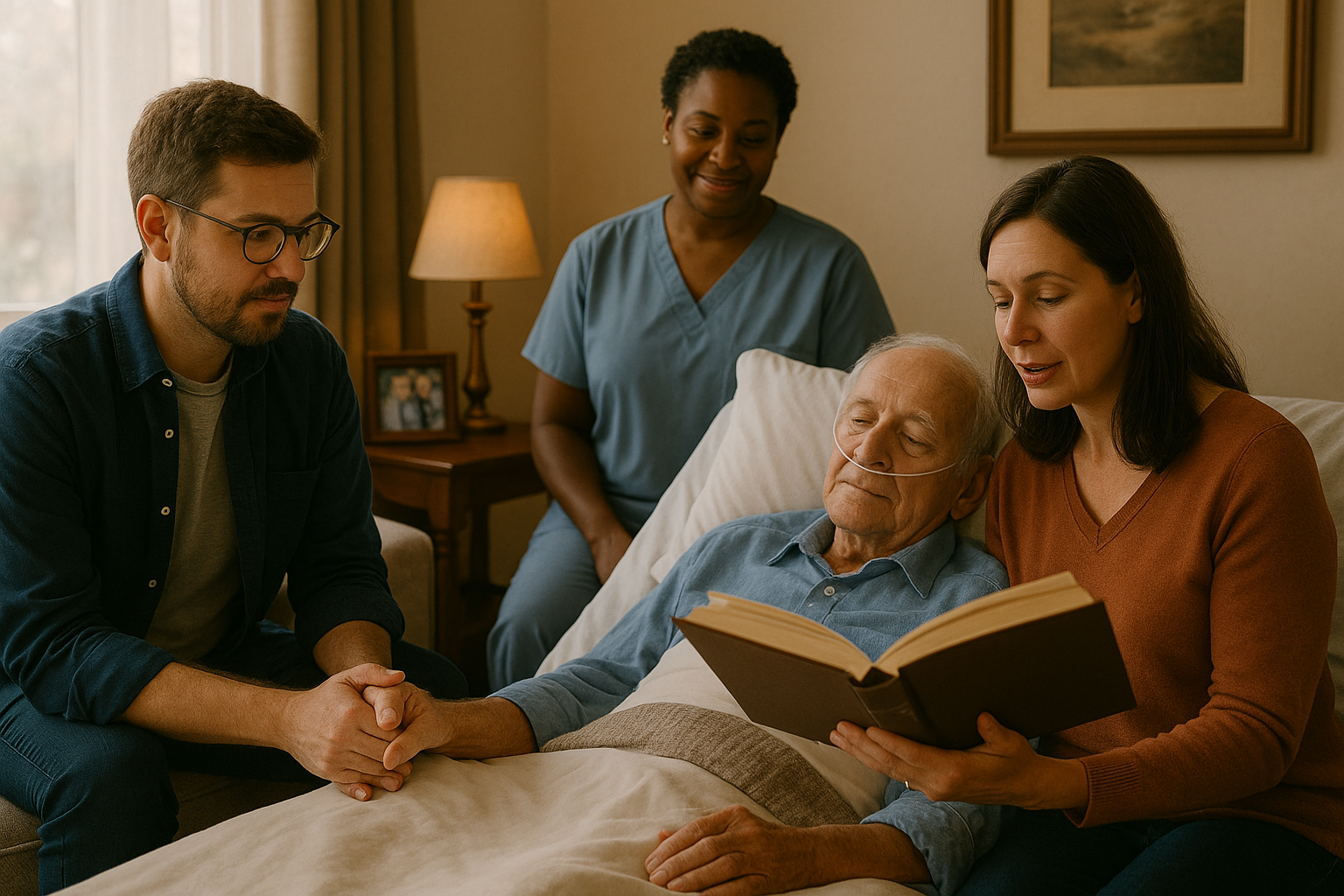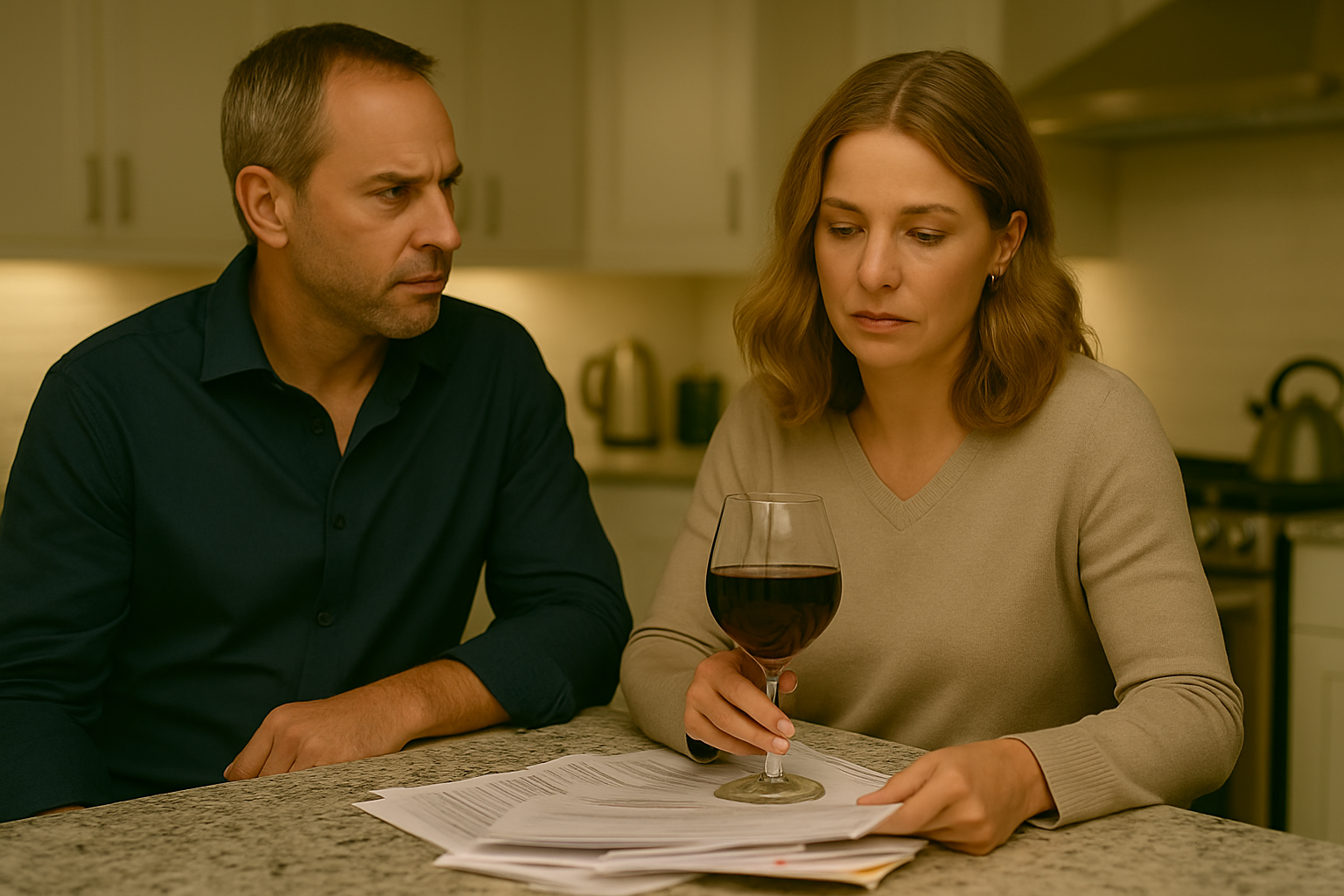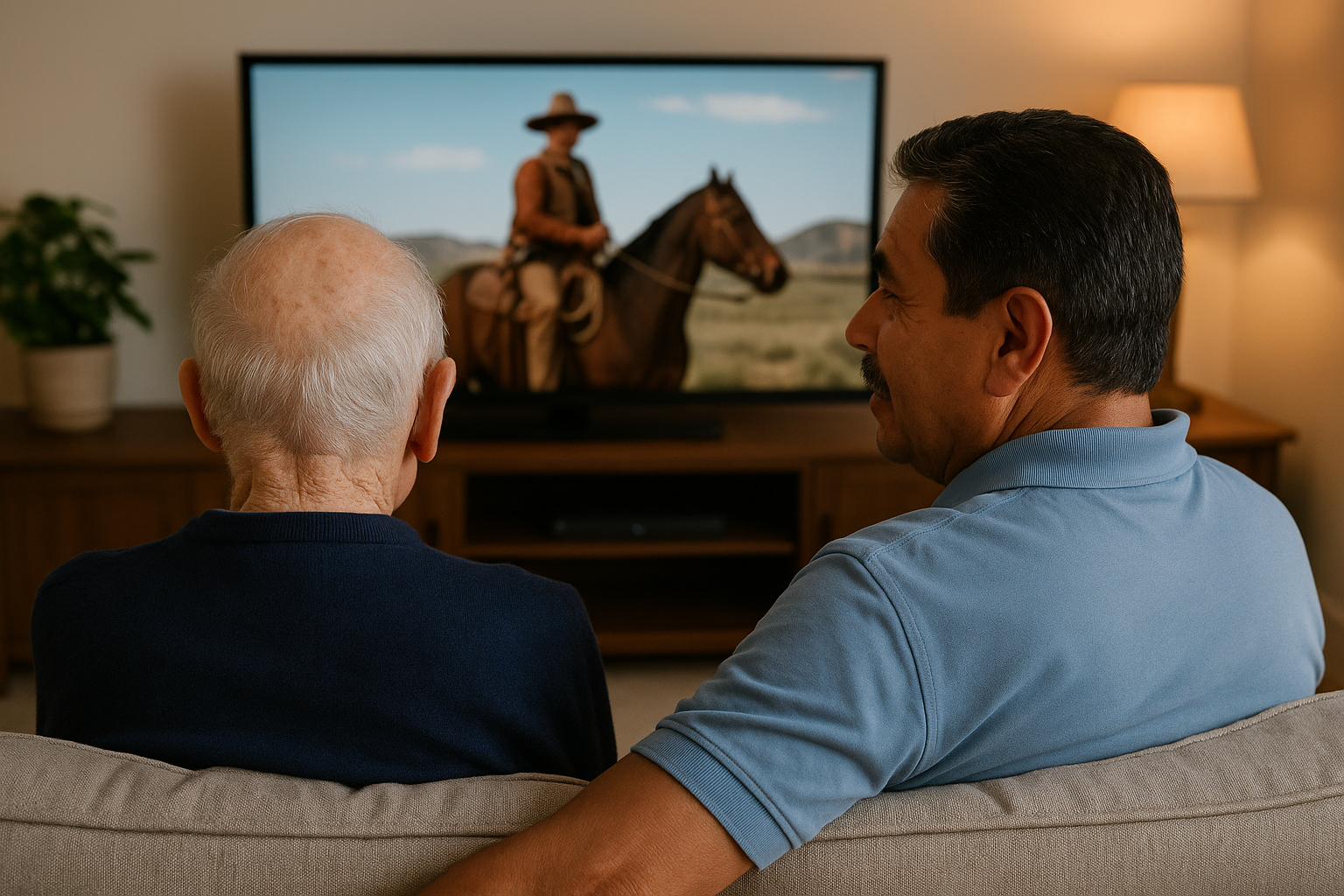Three Words That Changed Everything: "I Need Help."
When a retired engineer finally asked for assistance
Robert spent forty-three years solving problems.
As a structural engineer, he'd designed bridge supports that could handle Denver's freeze-thaw cycles, calculated load distributions for mountain highway overpasses, and figured out solutions when everyone else said "impossible."
So when his daughter Linda suggested he might need help around the house, his response was predictable.
"I've got it handled."
But at 81, after a mild stroke six months earlier, some problems weren't yielding to engineering principles.
The Engineering Mindset Meets Reality
Robert approached his recovery like any other project. He made lists. Created systems. Calculated efficiencies.
Morning routine: Shower, dress, breakfast, medications. Estimated time: 45 minutes. Actual time: 90 minutes.
Meal preparation: Simple proteins, minimal prep work. Plan: 20 minutes. Reality: Exhaustion after 10 minutes of standing.
Household maintenance: Tackle one room per week. Theory: Manageable. Practice: Overwhelming.
"Dad's always been a problem-solver," Linda told me during our initial consultation. "But he was trying to engineer his way around limitations that couldn't be engineered away."
The breaking point came on a Tuesday in September.
The Moment Everything Changed
Robert was working on his weekly project: organizing the garage. It was logical, systematic—exactly his style. Sort hardware by size. Group tools by function. Label everything clearly.
Halfway through, he found himself sitting on an overturned milk crate, staring at a pile of screws he couldn't quite figure out how to sort anymore. His hands weren't steady enough for the small containers. The standing made him dizzy. The system that made perfect sense in his head felt impossible to execute.
For the first time since his stroke, Robert Chen—the man who'd calculated structural loads for major Colorado infrastructure—couldn't solve the problem in front of him.
That evening, when Linda called for their usual check-in, something was different in his voice.
"Lin," he said quietly, "I think... I think I need help."
Three words. Forty-three years of professional problem-solving. Six months of stubborn independence. And finally: acknowledgment.
Why Those Three Words Are So Hard
If you're reading this and thinking about your own father, grandfather, or husband, you understand the weight of Robert's admission.
For men of his generation, asking for help wasn't just difficult—it felt like failure.
They were the ones who:
- Fixed everything that broke
- Provided for their families
- Solved problems instead of creating them
- Never admitted defeat
Saying "I need help" meant acknowledging that their body had betrayed their will. That their independence—the thing they'd built their identity around—was slipping away.
"It wasn't about pride," Robert explained to me later. "It was about purpose. If I can't take care of myself, what good am I?"
The Difference Between Giving Up and Getting Smart
When Linda called Atlee Home Care the next morning, her first question was familiar: "My dad's finally admitted he needs help, but I'm worried he'll see a caregiver as... failure."
Here's what I've learned after years of working with families: Men like Robert don't need to be convinced they're weak. They need to be shown that getting help is actually smart problem-solving.
We matched Robert with Marcus, a former construction foreman who understood both the physical challenges of aging and the mental framework of men who'd spent decades being the person others relied on.
The First Meeting: Speaking the Same Language
Marcus's approach was perfect for Robert's engineering mindset.
Instead of: "Let me help you with that." He said: "Mind if I serve as your project assistant today?"
Instead of: "You shouldn't be doing that alone." He said: "Two people can troubleshoot this faster than one."
Instead of: "I'm here to take care of you." He said: "I'm here to help you optimize your systems."
Same support. Different framework. All the difference in the world.
What "Help" Actually Looked Like
Robert didn't need someone to take over his life. He needed someone to help him adapt his approach.
The garage project: Marcus helped sort the small hardware while Robert directed the organization system. Robert's brain, Marcus's steady hands. Project completed successfully.
Meal preparation: Marcus handled the standing and chopping while Robert managed timing and seasoning from a bar stool. Same recipes, modified execution.
Medication management: They created a engineering-style checklist system with clear protocols and backup procedures.
Robert remained the project manager. Marcus became his most reliable team member.
The Shift: From Patient to Partner
"Marcus doesn't treat me like I'm broken," Robert told Linda after their third week together. "He treats me like I'm adapting."
That reframing changed everything.
Robert started looking forward to their "project sessions." He'd prepare lists of things to accomplish, problems to solve, systems to improve. Marcus brought the physical capacity Robert needed, and Robert provided the strategic thinking Marcus respected.
They redesigned the kitchen layout for better efficiency. Reorganized the workshop for wheelchair accessibility. Created backup systems for power outages.
Robert was engineering again. Just with a partner now.
What This Meant for Linda
The change wasn't just about Robert's daily life—it transformed Linda's relationship with her father.
Before: Every phone call was a welfare check disguised as conversation. Is he eating? Taking medications? Staying safe?
After: Phone calls became genuine conversations again. Robert would share what he and Marcus had accomplished, problems they'd solved, improvements they'd implemented.
"I got my dad back," Linda said. "Not the way he was before the stroke, but the essence of who he's always been—a problem-solver who happens to have some new parameters to work within."
The Ripple Effect
Word got around Robert's neighborhood. When his friend Jim started having balance issues after a hip replacement, Robert didn't lecture him about independence.
He said: "Jim, I've got a great project partner. Want me to introduce you?"
When his neighbor Paul struggled with yard work after heart surgery, Robert shared Marcus's approach: "It's not about doing less. It's about optimizing your systems."
Robert became an unofficial ambassador for the idea that getting help isn't giving up—it's strategic resource management.
The Lesson for Families
If you're dealing with a father, husband, or grandfather who insists "I'm fine" when clearly things are getting harder, Robert's story offers a roadmap:
Don't fight the independence. Work with it.
Don't emphasize limitations. Focus on adaptations.
Don't make it about care. Make it about collaboration.
Don't rush the process. Let them arrive at "I need help" in their own time and their own words.
Finding the Right Partner
The success of Robert's experience came down to the right match. Marcus understood:
- How to communicate with men who value competence
- The difference between helping and taking over
- When to lead and when to follow
- How to preserve dignity while providing support
Not every caregiver has that skill set. But when you find the right person, the transformation isn't just practical—it's profound.
Six Months Later: The New Normal
Robert still has his morning coffee at exactly 7:15 AM. He still makes lists and optimizes systems. He still solves problems and helps his neighbors.
The difference is that now he has a partner in those endeavors. Someone who brings capacity where Robert needs it, while respecting the expertise Robert still possesses.
"I thought asking for help meant admitting defeat," Robert told me recently. "Turns out, it just meant acknowledging that some projects require a team."
The Atlee Difference: Understanding Independence
At Atlee Home Care, we understand that independence isn't about doing everything yourself. It's about maintaining control over how things get done.
Our approach with clients like Robert:
- Respect their expertise while providing physical support
- Work as partners rather than caretakers
- Adapt systems instead of replacing them
- Preserve dignity while ensuring safety
- Match personalities that understand each other's communication style
Because the goal isn't just safety and care. It's helping people remain who they are, just with better support systems.
When "I Need Help" Becomes Possible
If someone in your family is struggling to say those three words, remember Robert's journey.
It's not about convincing them they're weak.
It's about showing them that getting help is actually the smartest solution to their current challenge.
And sometimes, the right caregiver isn't someone who provides care—it's someone who provides partnership.
Ready to explore partnership-based care for your family?
📞
Call Atlee Home Care: (720) 740-0380
🌐
www.atleecare.com
Because independence isn't about doing everything alone. It's about having the right team.




